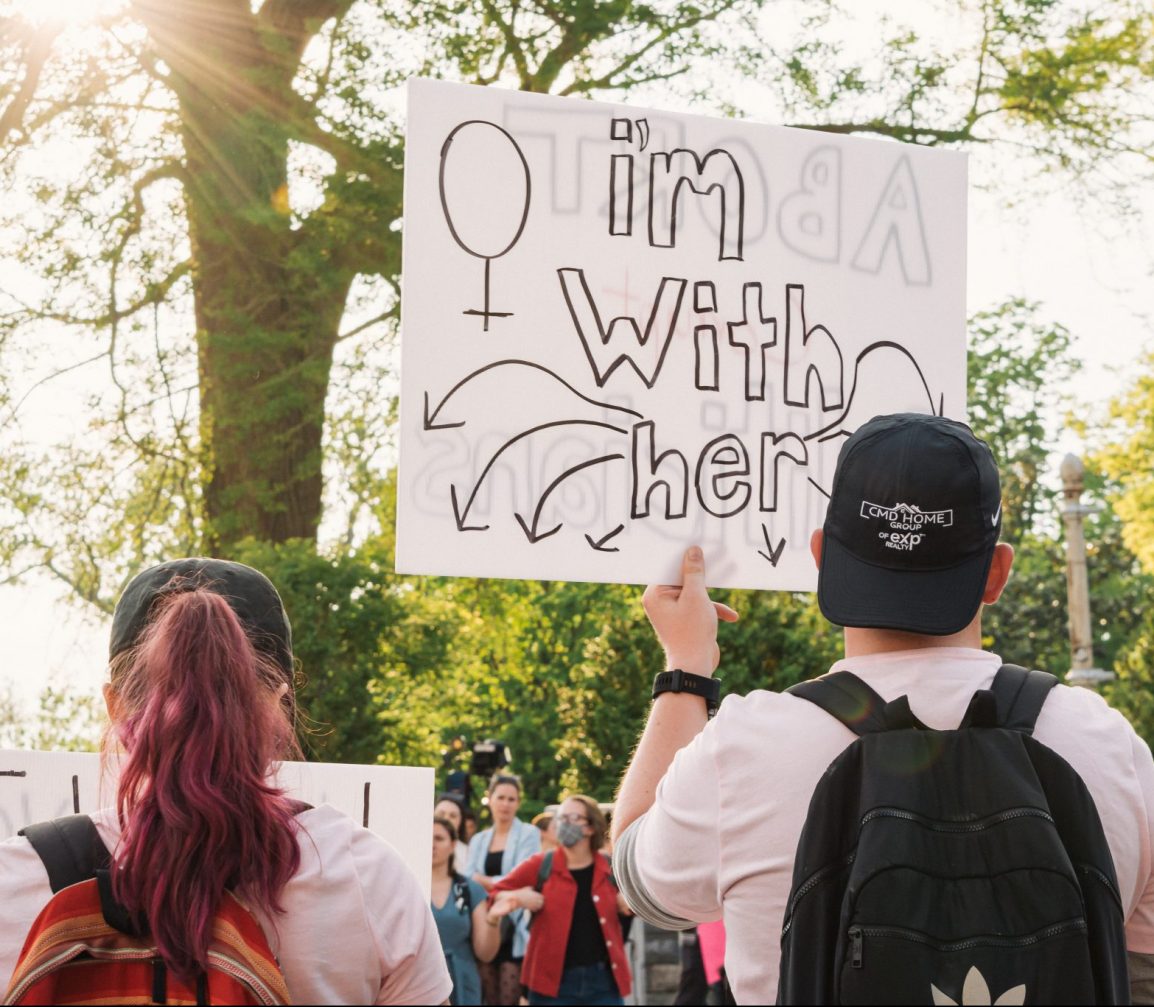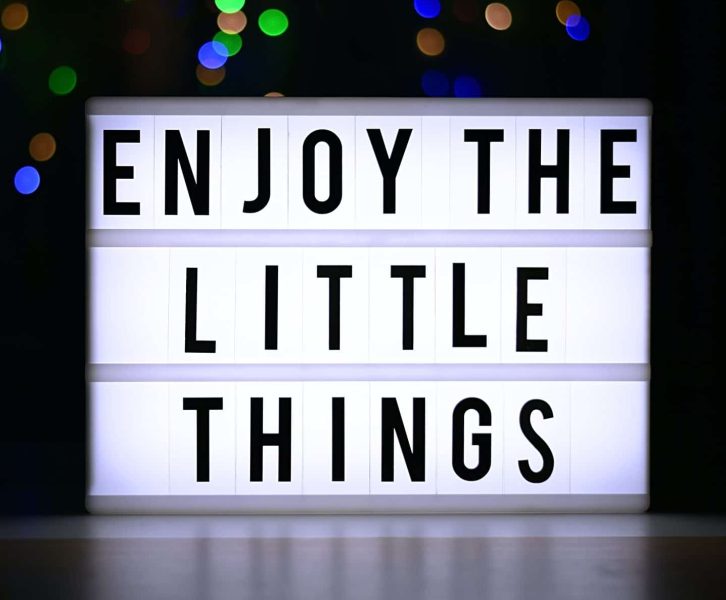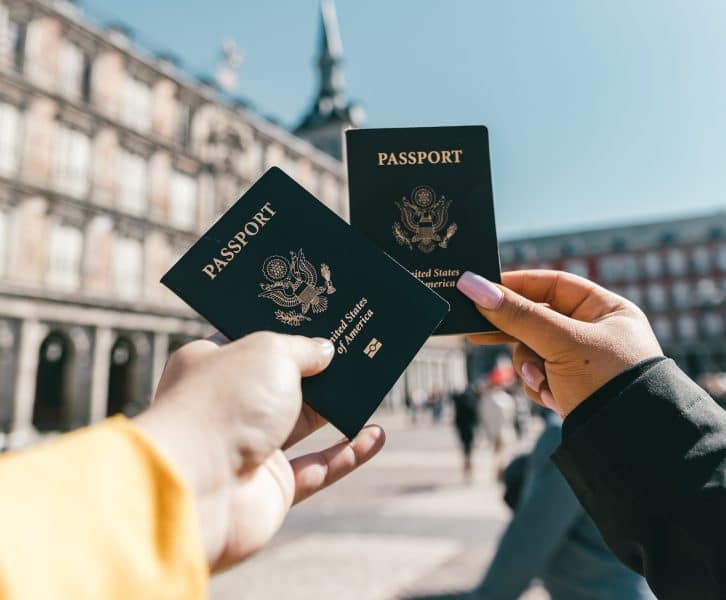Content Warning: Some topics brought up can be triggering or inappropriate for certain audiences. These include violence, abuse, sexual assault, and mentions of death. Reader discretion is advised.
There are a lot of conflicting opinions on the Supreme Court’s decision to overturn Roe v. Wade. The overturning of Roe v. Wade does not directly take a woman’s right to an abortion away. But it will give states the power to determine that right. Some states will probably continue giving citizens the right to an abortion. Others are leaning towards varying levels of restrictions on abortion rights. Since the ruling, stories of how Roe v. Wade began, why people agree with abortion being a constitutional right, and why others disagree have been at the forefront of conversations surrounding women’s rights.
I don’t want to reveal bias for my own views on abortion. I also don’t want to provide context for judgement over another woman’s life decisions.
The Whys
Why Was Roe v. Wade Overturned?
The constitutional right to an abortion had been in existence since 1973.
When Norma McCorvey (also known by the pseudonym Jane Roe) became pregnant for the third time in 1969, at 21 years old, she hoped to get an abortion in her home state of Texas. Laws in Texas only allowed a woman to abort a fetus if her health was threatened. Therefore, McCorvey didn’t have a case to legally abort her child. So she turned to lawyers Sarah Weddington and Linda Coffee for help. The New York Times’ article, “Seeing Norma: The Conflicted Life of the Woman at the Center of Roe v. Wade” explains that McCorvey wasn’t wealthy, was single, and was working multiple jobs to get by. All of these factors went into it being difficult for her to not only travel to obtain an abortion, but to be able to make a living while remaining pregnant.
In 1973, McCorvey told the Southern Baptist Convention news service, “I was a woman alone with no place to go and no job…No one wanted to hire a pregnant woman. I felt there was no one in the world who could help me”. McCorvey’s lawyers, Coffee and Weddington, argued that Texas abortion laws violated women’s rights to privacy. Later, Roe v. Wade turned into a class action lawsuit demonstrating “the case for the constitutional right of all Americans to determine the course of their lives”. Weddington argued to the Supreme Court that pregnancy disrupts, “her (a woman’s) body, it disrupts her education, and it often disrupts her entire family life”. Eventually, Weddington’s arguments proved successful, with the Supreme Court legalizing abortion by a 7-to-2 majority.
“Pregnancy disrupts her body, it disrupts her education, and it often disrupts her entire family life.” (Sarah Weddington)
In the latest Supreme Court decision, Justice Samuel Alito said that the 1973 Roe ruling and repeated subsequent high court decisions reaffirming Roe “must be overruled” because they were “egregiously wrong,”. The arguments were “exceptionally weak” and so “damaging” that they amounted to “an abuse of judicial authority.” (from NPR’s “Supreme Court overturns Roe v. Wade, ending right to abortion upheld for decades”).
Why Young Women Agree With the Overturning of Roe v. Wade
For these next two sections, I gathered real responses from women in their twenties. These years are scientifically known as women’s peak reproductive years. Of course, these don’t represent all views. But, I thought it would be important to gather what I could to amplify real women’s voices. Especially the voices of those that are directly affected.
Note: These responses were edited for length and clarity. Responders chose to remain anonymous.
Sarah:
“I agree with it (overturning of Roe v. Wade) because I’ve seen its agenda be used against black women and other minorities for such a long time. Growing up, I lived on the “black” side of town. There were multiple abortion clinics within a five minute drive from my house. I went to school on the “white” side of town and there were none there. People don’t understand that abortion has been a huge factor in why the African-American population is staying the same rate. Just in Alabama, black women represented over 60% of the abortions that happened in 2019. To me, I’m like ‘So the smallest percentage of people is getting the largest percentage of abortion… something is not adding up.’
There has been so many systematic injustices and foundational lack of education about sex. So many people in my community don’t know that abortion was used to basically be a mass genocide of black people! It’s crazy! It’s also important to me that being pro-life isn’t about caring about someone until they have a baby, but it’s important to care about their life! Life as in 0-100. There are so many issues with people being pro-birth and not really caring what else happens to someone that did not want to have a baby in the first place. I would love it if people start advocating and providing resources to help these women…as much as they like to talk about it. It’s disappointing to see people not care about the hundreds of thousands of kids in foster care already.”
Why Young Women Disagree With the Overturning of Roe V. Wade
Olivia:
“I would just say that access to abortion is healthcare, and the inability to access it safely and punishing the mother and / or health professionals who perform them is barbaric. People will continue to get abortions, but they won’t be safe. Pregnancy is a really strenuous thing to put one’s body through and the ability to not terminate a pregnancy, whether the carrier is ill, whether it’s ectopic, whether it was a case of rape or incest or the parent simply is not ready or does not want a child… The inability to access safe abortions will be detrimental for the health of thousands. Both mentally and physically.
Other issues should have been addressed first, such as mortality rate in pregnant persons, especially people of color, the foster / adoption care system, minimum wage, sexual education, and health care in general. Abortions are healthcare and taking them away from the people most in need of them is cruel. No one should be forced to have a child if they don’t want it. And for some states to have a total ban of abortion even in instances of rape, incest, ectopic or unviable fetuses (babies)…That isn’t lawmakers supporting their constituents. It’s unlawful and a violation of a person’s privacy.”
Erica:
“I disagree with the overturn completely. This will cause more death than abortions. The argument has always been over body autonomy. Just simply saying it’s murder no matter what is such simple thinking. I think it’s deplorable that a corpse/ cadaver has more rights than I do. Even if someone was dying, I would not be forced to give blood or one of my organs to make sure someone else lives. I think that should apply for an afab (assigned female / male at birth) person and a fetus. Separation of church and state matters as well.
Afab people are in danger because so many medications can be considered abortion causing drugs. My migraine medication can cause fetal harm. If that is taken, I would be in unbearable pain. I believe in choice in everything. It is not my business what any person does with their medical choices. I am religious but I do not think my religion should dictate what others should do with their lives. This will also infringe on other citizens’ religious choices such as the Jewish community and many others. We are already seeing states trying to push harsher laws. In Ohio, a ten year old sexual assault victim was forced to have to go over state lines to seek treatment. It’s deplorable what violence the government wants to incite against afab persons.”
What This Could Mean
Economics
Statistics
According to Forbes, “How Overturning Roe V. Wade Can Impact The Economy”, “Roe v. Wade can impact women’s ability to take care of themselves and the children they have now or in the future. Approximately 60% of women in the U.S. who have abortions are already mothers… Approximately one-third of women seeking an abortion say their reason for wanting to terminate the pregnancy is to care for children they already have.” Women’s workforce participation could decrease as parental status increases. It’s not a disputed fact that women typically perform most caregiving duties. This includes working women, who often perform the “second shift”. (The second shift entails taking on major parental duties, more than the other parental figure takes on, outside of a woman’s work day at her place of employment.) With this in mind, it’s not surprising that 43% of working mothers leave their careers. Working women lose an average of 18% of their earning power after taking a temporary leave from work (commonly to give birth and take care of a child). And if a woman decides to spend three years or more out of the workforce, that turns into losing 37% of her earning power.
The Turnaway Study
The article also provides input from Dr. Diana Greene Foster, professor at the University of California San Francisco and lead author of the landmark Turnaway Study. This study examines the effects of unwanted pregnancies on women’s lives. Dr. Foster explains that, for those who are denied abortion, public assistance increases, but, “…public assistance isn’t enough to support a family.” The study also found that rights to abortion led to increased wages, especially in black women. Without rights to abortion, studies have also found women might face decreased earning potential, negative impact on children’s financial wellbeing, and negative impact on equality. Dr. Foster says, “People who seek abortions are disproportionately people of color, so it’s already hitting a population that tends to be systemically disadvantaged…If Roe v. Wade is overturned, the most economically privileged among people who become pregnant will be able to get abortions, and the least privileged will not. It will exacerbate these health disparities, these economic disparities, and these racial disparities.”
Healthcare
Termination of a Pregnancy for Medical Reasons (TFMR)
According to CNN’s article, “Women have abortions for many reasons aside from rape and incest. Here are some of them”, Erica Goldblatt Hyatt decided to have an abortion after she found out her son was diagnosed with Congenital High Airway Obstruction Syndrome. He was also diagnosed with a chromosomal abnormality. Doctors told Hyatt that if her son didn’t die by heart failure in the womb, he would be born brain dead. Hyatt ultimately chose to abort her son. This unfortunately isn’t an uncommon occurrence. So much so that Termination of a Pregnancy for Medical Reasons (TFMR) is a medical term that healthcare professionals resort to “if the baby has been diagnosed with a condition that can cause death or serious disability… (or) if a pregnancy complication poses a threat to your (the woman’s) life” (according to Tommy’s.org). In these cases, an abortion could end suffering due to health conditions and / or could be a life saving procedure for a mother.
Ectopic Pregnancies
While abortion laws usually still allow for women with life-threatening conditions to undergo the procedure, there are concerns over delayed care due to vague legislative language. The most common condition mentioned is an ectopic pregnancy. For now, these are only concerns. I don’t want to raise false alarms bringing this point up, but I thought it would be worth mentioning because it is a valid point that has been spoken about in sources such as Healthline’s article, “Ectopic Pregnancies Are Dangerous. Will They Be Affected by Abortion Bans?”.
Medication
Medication is also a factor. Everyday Health explains that women with inflammatory diseases are experiencing difficulties accessing the medication methotrexate. While methotrexate isn’t the same as an abortion pill, it’s often prescribed to treat an ectopic pregnancy. Essentially, it can be used to non-surgically end a pregnancy. Because of this use of methotrexate, some pharmacists in states with heavier abortion bans and restrictions could hesitate to fill prescriptions for women with conditions that need the medication who are in their childbearing years. These conditions include rheumatoid arthritis (RA), lupus, and psoriatic arthritis (PsA).
IBD
Other medical concerns are from women with Crohn’s Disease and Ulcerative Colitis. According to Oxford Academic’s journal, Inflammatory Bowel Diseases (IBD), “disease activity might harm their (a pregnant woman with IBD’s) fetus and therefore flares should be avoided during pregnancy, and on the other hand, the women are reluctant to take the medications to control disease activity because they feel they might harm their fetus.” Essentially, due to their conditions and the risks of having children with health difficulties, including a genetic component where they inherit their mother’s IBD, a woman with this condition might want to abort her child. Laws in her state might prevent her from being able to do so.
Abuse
According to research from the Bixby Center for Global and Reproductive Health, 8% of women wanted an abortion because they had an abusive partner. In a study done by BioMedCentral’s BMC Medicine, 6% to 22% of women seeking an abortion reported recent violence from a romantic partner. In a research study, it was found that, “Among women seeking abortion, having an abortion was associated with a reduction over time in physical violence from the MIP (Man Involved in the Pregnancy), while carrying the pregnancy to term was not. Terminating an unwanted pregnancy may allow women to avoid physical violence from the MIP, while having a baby from an unwanted pregnancy appears to result in sustained physical violence over time.” They also found that women who were denied abortions were slower to end their abusive relationships than women having abortions. Women denied abortion were also more likely to have continued contact with their abuser over time.
Religion
I can’t ignore the religious impact that the overturning of Roe v. Wade has had. Many churches and those who identify as very religious believe this is a victory for women and babies. For those who believe abortion equates to homicide, which is illegal and agreeably wrong, it’s not difficult to see how, legally and morally, religious groups can believe that abortion is wrong. While I’m keeping this article as factual and unbiased as possible, I thought that side of the debate is important.
Conclusion
Overall, the overturning of Roe v. Wade has led to a lot of mixed emotions. Some believe this is a victory for women and children, and others believe the opposite. Each have their own moral and scientific basis, and this is a topic that is viewed from multiple lenses. My goal in writing this is not to persuade any reader towards one side, but to be able to reveal some of the implications that have been brought up. Regardless of what your views on the matter are, just know you have the right to believe in what you think is best. But, with that in mind, everyone else also has that right too. I ask that we all try to respect others, listen to all sides, educate ourselves, and stay hopeful and positive even when it’s difficult. Thank you so much for reading.
Sources
- https://www.girlspring.com/roe-v-wade-overturned-what-does-it-mean/
- https://reproductiverights.org/maps/what-if-roe-fell/
- https://www.nytimes.com/2022/07/02/books/norma-mccorvey-roe-wade.html
- https://www.npr.org/2022/06/24/1102305878/supreme-court-abortion-roe-v-wade-decision-overturn
- https://www.acog.org/womens-health/faqs/having-a-baby-after-age-35-how-aging-affects-fertility-and-pregnancy#:~:text=A%20woman’s%20peak%20reproductive%20years,is%20unlikely%20for%20most%20women.
- https://www.forbes.com/sites/hollycorbett/2022/06/07/how-overturning-roe-v-wade-can-impact-the-economy/?sh=1cd30f4d632f
- https://www.washingtonpost.com/blogs/she-the-people/wp/2014/08/06/the-second-shift-at-25-q-a-with-arlie-hochschild/
- https://www.cnn.com/2019/05/21/health/women-reasons-abortion-trnd/index.html
- https://www.tommys.org/baby-loss-support/tfmr-terminating-pregnancy-medical-reasons
- https://www.healthline.com/health-news/ectopic-pregnancy-and-abortion-laws-what-to-know
- https://www.everydayhealth.com/rheumatoid-arthritis/women-with-ra-may-have-trouble-accessing-methotrexate-due-to-abortion-restrictions/
- https://academic.oup.com/ibdjournal/article/25/3/561/5069528?login=true
- https://bixbycenter.ucsf.edu/news/women-denied-abortion-more-likely-stay-abusive-relationships
- https://bmcmedicine.biomedcentral.com/articles/10.1186/s12916-014-0144-z







